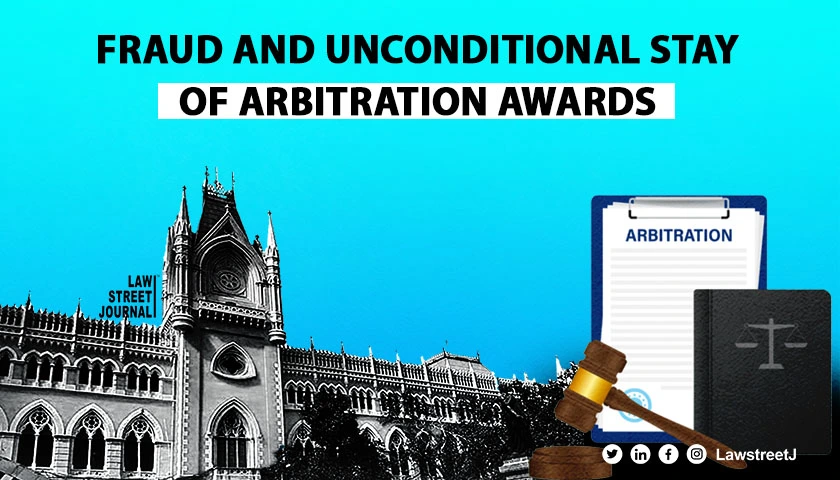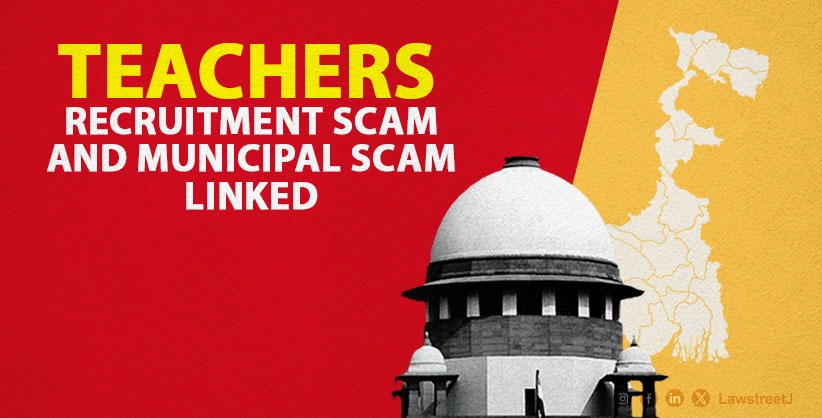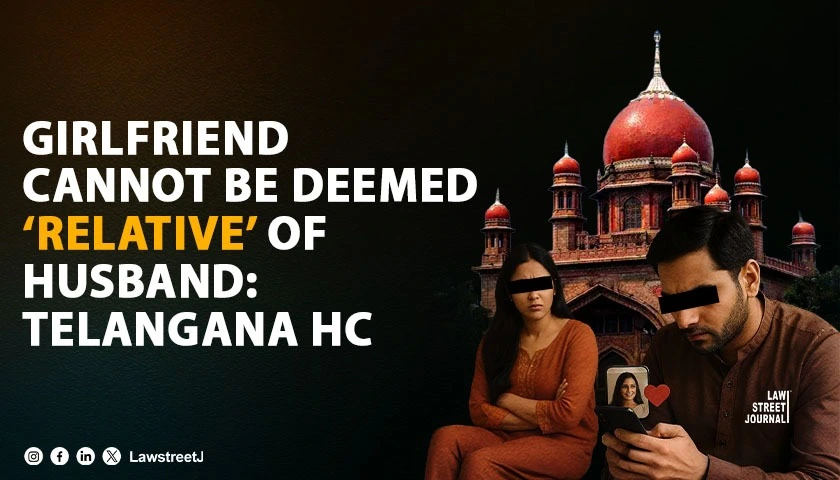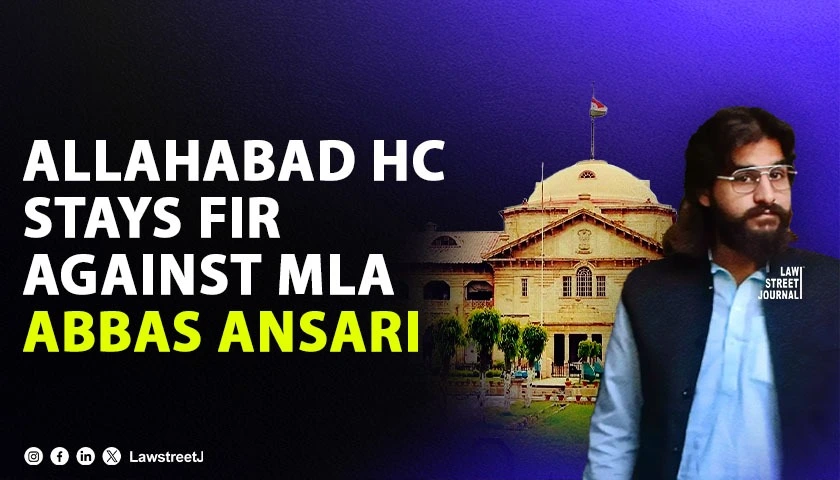CALCUTTA: In a pertinent judgement, the Calcutta High Court has observed that 'fraud' has to be on the face of the record for granting unconditional stay of an award under Section 36(3) of the Arbitration and Conciliation Act, 1996.
Highlighting this, Justice Moushumi Bhattacharya stated that the term prima facie in second proviso to section 36(3) means that the finding regarding fraud must be on the face of the record or in simple terms, from a first look of the arbitration agreement or the award.
The second proviso to section 36(3) requires the Court to be satisfied of a prima facie case of the arbitration agreement being vitiated thus. The words prima facie as a part of the requirement of the Courts finding contemplates a finding of fraud on the face of the record, that is to say from a first-blush look of the arbitration agreement or the award. Prima facie does not require the Court to delve into the merits of the dispute or unravel the records by way of a detailed consideration. The inducement to the complaining party to enter into the arbitration agreement or the making of the award being tainted by fraud must be plain and ready to be discovered even without a detailed enquiry into the facts.
In this case, the petitioner/award-debtor sought an unconditional stay of an Arbitral Award dated June 21, 2022 under the second proviso to section 36(3) of the Act.
The respondent invoked arbitration proceedings after the petitioner terminated the contract, seeking specific performance of the Gas Supply and the Purchase Agreement and damages. The Arbitral Tribunal held the termination of the GSPA was wrongful and illegal and awarded a sum of over Rs. 58 crores to the respondent along with damages. The Respondent claimed an amount of Rs. 101.39 crores as the outstanding amount due to them.
And so, the petitioner prayed for unconditional stay on the ground that the Arbitration Agreement was induced by fraud. According to the petitioner, they were induced into executing the Agreement and proceeding with the same without any knowledge of the orders passed by the PNGRB and the Delhi High Court which, according to the petitioner, had restrained the respondents from laying the pipelines for supply of the gas under the terms of the agreement.
After going through the relevant arguments, the High Court ruled that there was no restraint on the respondent, at any point of time, either by PNGRB or by the Delhi High Court, to stop supply of CBM to its customers or remove CBM supply lines for performing the contractual obligations.
The respondents had argued that the petitioner/award-debtor was aware of the orders of the PNGRB as well as of the Delhi High Court. The petitioners knowledge would be relevant since the petitioner mounts its argument on fraud and suppression / lack of disclosure on the part of the respondent, the court noted.
The Court observed that the orders of the PNGRB and the Delhi High Court were not only in the public domain, but were also part of the Balance Sheets of the respondent, which the petitioner had accessed to, since 2017.
The records show that the respondent disclosed the orders passed by the PNGRB and the Delhi High Court in its Financial Statements which were available on the respondents website and were also filed with the Ministry of Corporate Affairs. The disclosures were in fact the part of the respondents Balance Sheets from 2010-2011 onwards which forms part of the respondents affidavit-in-opposition in the present proceeding.
Delving into Indian Contracts Act, 1872, the Court said that for a contract to be treated as voidable at the option of one of the parties to the contract, it was be proved that the consent to the agreement was obtained by coercion, fraud or misrepresentation.
The exception to section 19 of The Contract Act, 1872 would apply where the party alleging fraud had the means of discovering the truth with ordinary diligence. Since the orders of the Delhi High Court and the PNGRB were in the public domain and were also disclosed by the respondent in its Balance Sheets and the petitioner had itself relied on through its witness, the case of the petitioner would fall (also as in collapse) within the exception to section 19 of the Contract Act, 1872.
On these grounds, the court rejected the petitioners argument that the Arbitration Agreement was induced or effected by fraud.
Coming to Section 36(3) of the Arbitration and Conciliation Act, 1996, the Court drew attention to the genesis of the provision. The second proviso to section 36(3) was inserted into the Act in 2021 with retrospective effect from October 23, 2015 and provides that an award shall be unconditionally stayed pending disposal of the challenge to the award under section 36 of the Act, where the arbitration agreement or contract, which forms the basis of the award or the making of the award was induced or effected by fraud or corruption.
Relying on Section 17 of the Contract Act, 1872, the Court said that Fraud includes any of the acts committed by a party to a contract or with his connivance or with his agent to deceive another party or to induce him to enter into the contract where the suggestion of a fact is made which the party making it knows to be untrue. The Explanation to the sub-sections to section 17 further clarifies that mere silence as to the facts likely to affect the willingness of a person to enter into a contract is not fraud. Unless it is the duty of the person keeping silence to speak or unless the silence is in itself equivalent to speech, the Court added. It is relevant that section 17(2) contemplates active concealment which points to deliberate non-disclosure with a pre-meditated intention to deceive the other party or induce him to enter into the contract.
Coming to the case, the Court went on to say that the petitioners only intention for filing the present application is to avoid making any deposit for securing the award while rejecting to grant unconditional stay of the award.









![Calcutta High Court conducts late-evening hearing, orders release of lawyer arrested inside court [Read Order]](/secure/uploads/2023/12/lj_4146_Court_lawyers_arrest.jpg)
![Indian Courts this Week: Law Street Journal's Weekly Round-Up of SC & HCs [Jan 1 - Jan 6]](/secure/uploads/2024/01/lj_9050_WhatsApp_Image_2024-01-06_at_12.07.10_PM.jpeg)






